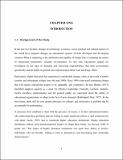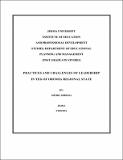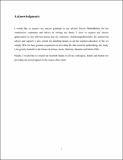| dc.description.abstract | The purpose of the study was to investigate the practices and challenges leadership in TEIs of Oromia Regional State. The study particularly, investigate the extent to which the TEI leadership team members were engaged in the practices of Kouzes and Posner’s transformational leadership in promoting educational reform and improving quality of education and factors that affect the implementation effective leadership required to change and improve the institutions. To accomplish this purpose, the study employed a descriptive survey method, which is supplemented by qualitative research to enrich data. The study was carried out in six TEIs selected through stratified random sampling aimed at including TEIs with varied experience of training teacher. Then 164 teacher-educators were selectedfrom the six TEIs using random sampling techniques. All the Deans of the six TEIs were included in the study for interview. Kouzes and Posner’s Leadership Practice Inventory Questionnaire (Observer) was the main instrument of data collection. Interview was also utilized to substantiate the data gained through the questionnaire. Frequency, percentage, mean and Standard deviation were utilized to analyze the questionnaire. The qualitative data obtained through interview were analyzed using narration. The results of the study reveal that the leadership teams of the TEIs were moderately engaged in the five practices of Kouzes and Posner’s Practices of transformational leadership and the leadership practices were ineffective. The academic and non-academic staffs of the TEIs were involved in the complex task of improving quality of the training and institutional performance without adequate guidance and support of the TEI leaders. Most of the leaders were also involved in the difficult task of leading the institutions without prior leadership training.Furthermore, the study revealed that: lack of effective leadership, lack of leadership training and experience, failure to challenge the status quo, failure to motivate, empower and enlist staffs in designing and implementing common goals, shortage of budget, and inadequate skill of communicating a shared vision hindered proper implementation of the training processes. Generally, lack of cooperative relationship between the leaders and the staff and among the staff, lack of effective human resource strategy, leaders’ incapability to use various approaches in securing and utilizing resources to secure competitive advantage,were the major challenges facing the institutions. Finally recommendations were drawn based on the above findings. The point of the recommendations include: awareness on the part of TEI leaders through seminars, workshops about the practices of effective leadership outlined in this study. The TEI leaders should have leadership development plan, paying attention to their own leadership development in order to improve their leadership capacity and to improve the status of their engagement in the five practices of leadership used in this study. | en_GB |




